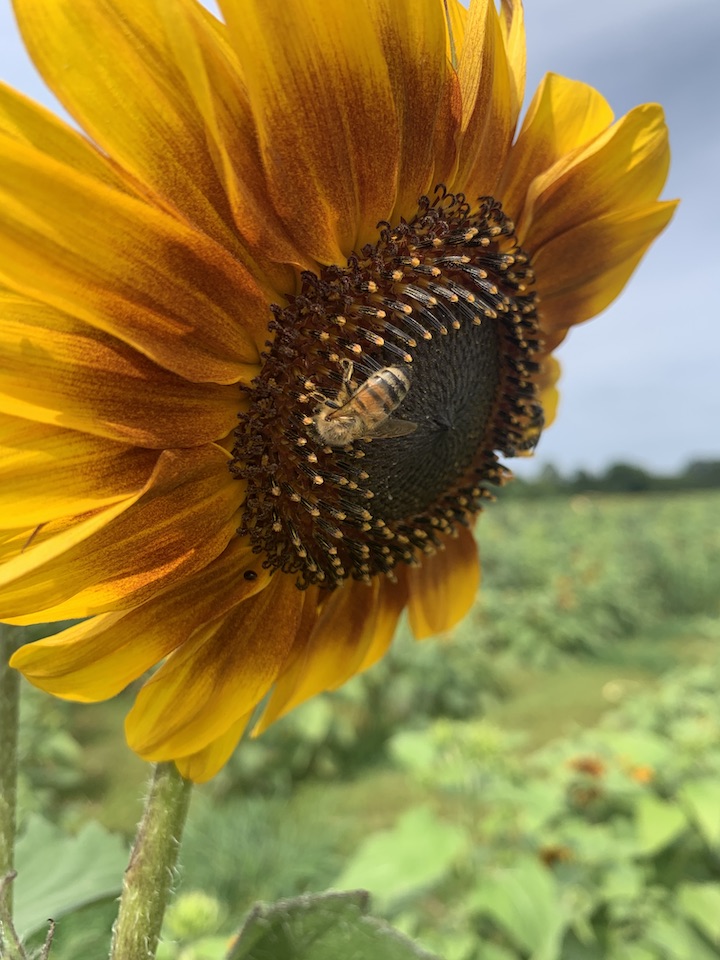It is so hard to know when to have “the talk” with your kids.
You know – THAT talk. The one that makes every parent a little squirmy and uncomfortable.
Awkward as it may be, research shows that talking to our children about sex can help protect them from predators AND help them make better choices later on.
Alexa, play Salt n Pepa’s “Let’s Talk About Sex.”
Before I had kids, I thought there would literally just be one moment when you sat down and had this somewhat uncomfortable, parental heart-to-heart with your child – and then you’d be done.
In real life, it doesn’t actually work like that. The official, parental sex talk is not usually a one-time conversation. In fact, you may have this talk repeatedly across many years, usually at bedtime after the lights are out so it’s less embarrassing for everyone involved.
The number one tip I have for parents with young kids is to let them ask questions and to provide open and honest answers. It’s best if the sex talk (talks) happen as an organic type of conversation that arises anytime kids ask questions of that nature.
It’s not up to us parents to decide when to have the talk; we simply follow our kids’ lead by answering their questions and then asking if they’d like to know more.
Then again, if your child is getting to a certain age and still hasn’t asked, you could always be the one to initiate. Starting with a question like, “are kids at school starting to talk about how babies are made?” might be one approach.
It can be very helpful to have a book to guide you in what is age-appropriate conversation. We really liked the book “It’s so amazing” for about age 7 and up, followed by the companion book “It’s perfectly normal” for about age 10 and up.
The books helped a lot. I bought them off Amazon long before I needed them. That way, when Z started asking questions, I was able to pull out the books and answer questions knowledgeably and confidently. I will say be sure to read them alone before you read them with your kids, as there may be some things (especially in the older kids’ book) that shock or surprise you. It gets pretty advanced!
We started out with the “junior” version by reading one chapter a night, based on a particular question Z had asked. Then, I’d ask if she wanted to keep learning or save the rest for another time. Usually, one chapter at a time was plenty. Then we’d put the book aside until she asked for it again or asked a question that was best answered with the help of the book.
With the books to guide me, and having long ago taught Z about dads having sperm and moms having eggs, and babies being a combo of both, I thought I had this whole birds and bees thing well in hand.
But then a day came in the mid-elementary school years when Z approached me and asked, very puzzled, “Mommy, I know the daddy has the sperm and the mommy has the eggs. But how do they get together? Does it just happen automatically when they get married? Or does the mommy have to somehow eat the sperm to get it into her tummy? That’s too weird, right?”
Oh, honey. No, it’s actually even weirder than that.
That’s when I knew it was time to bust out the second book, which goes into a lot more detail and even has some helpful (but still fairly wholesome) illustrations.
But by the end of elementary school, there was still one aspect of “the talk” that I hadn’t had yet with Z. I really struggled with it, and I know I shouldn’t have. That was the part about sexual pleasure.
For some reason, I always avoided talking about the pleasure aspect. Even when Z asked questions that could have (and should have) led to me talking about sexual pleasure, I never went there. She literally once asked me, “Mom, why do people DO this?! It’s so weird and gross! Why would people ever want to do it?”
That was my cue to talk about the pleasure aspect, but I choked up and didn’t do it; I simply referred her back to the second book. I regret that but, thankfully, sometime just before middle school, I finally got over my nerves and talked to her about the pleasure piece.
In fact, once female and AFAB (assigned female at birth) kiddos have their period, it makes sense to let them know that self-pleasure is actually a healthy way to relieve period cramps and may even shorten the duration of their periods.
There are so many reasons why our kids should hear about sex, pleasure and sexual health from us, their parents, rather than from peers or the movies. Even in the age of the Internet, misinformation abounds and you would not believe the myths that are rampant in middle school.
Letting kids know that they can ask us anything and we’ll talk openly and honestly with them is a critical step that will pave the way for future crucial conversations when they are older and really need our input.
Do you have other tips for parents who haven’t yet had “the talk” with their kiddos yet? I’d love to hear them in the comments below or over on Facebook or Instagram.




